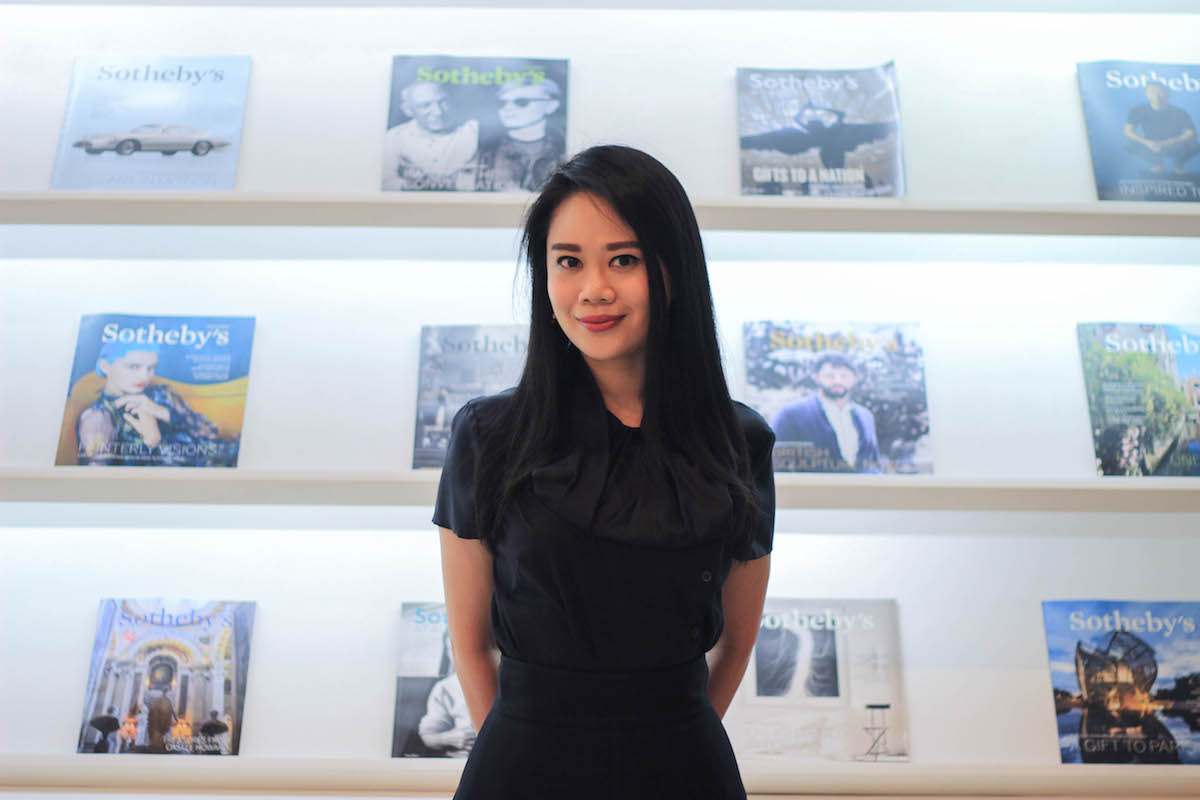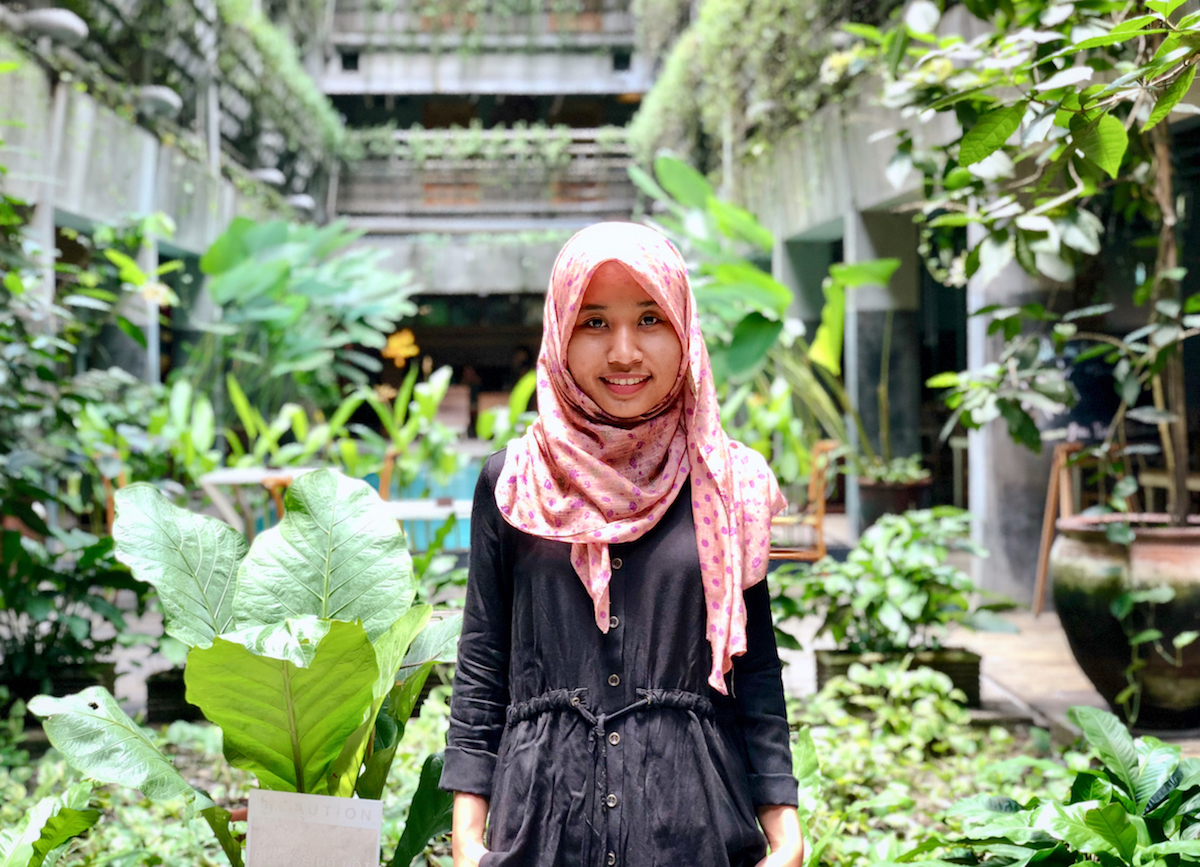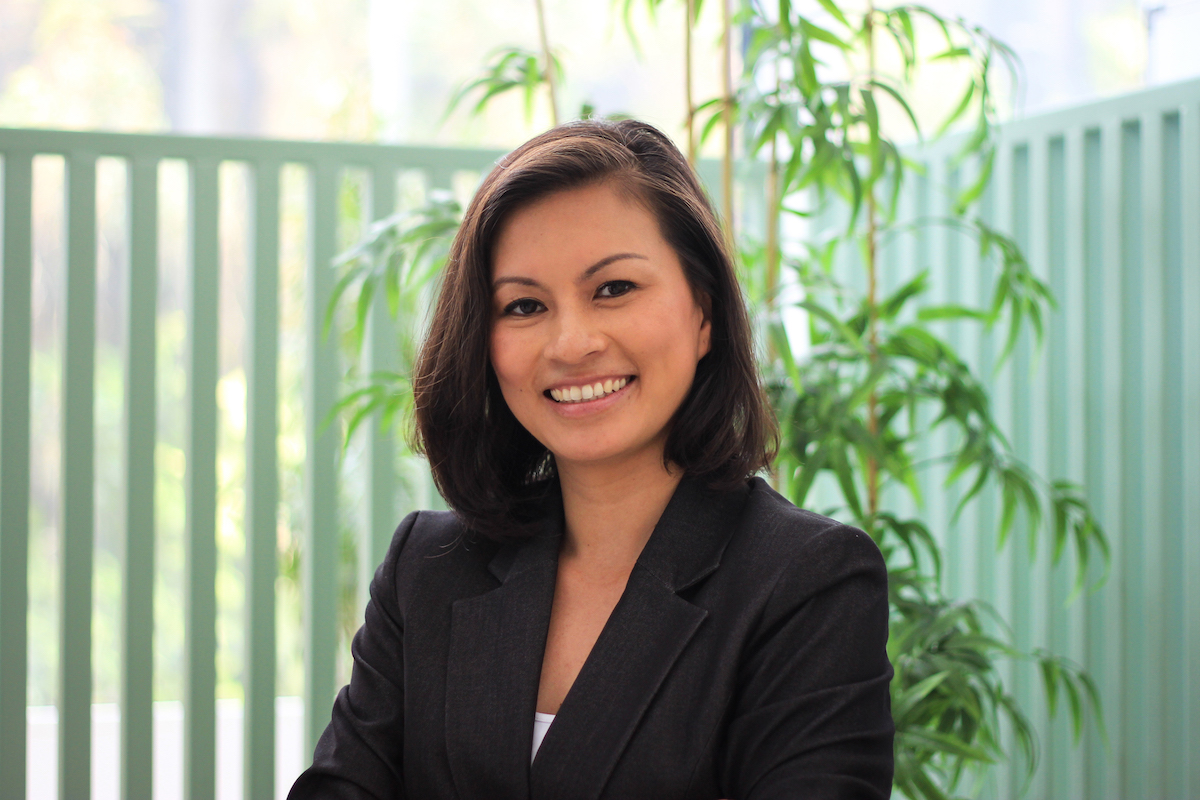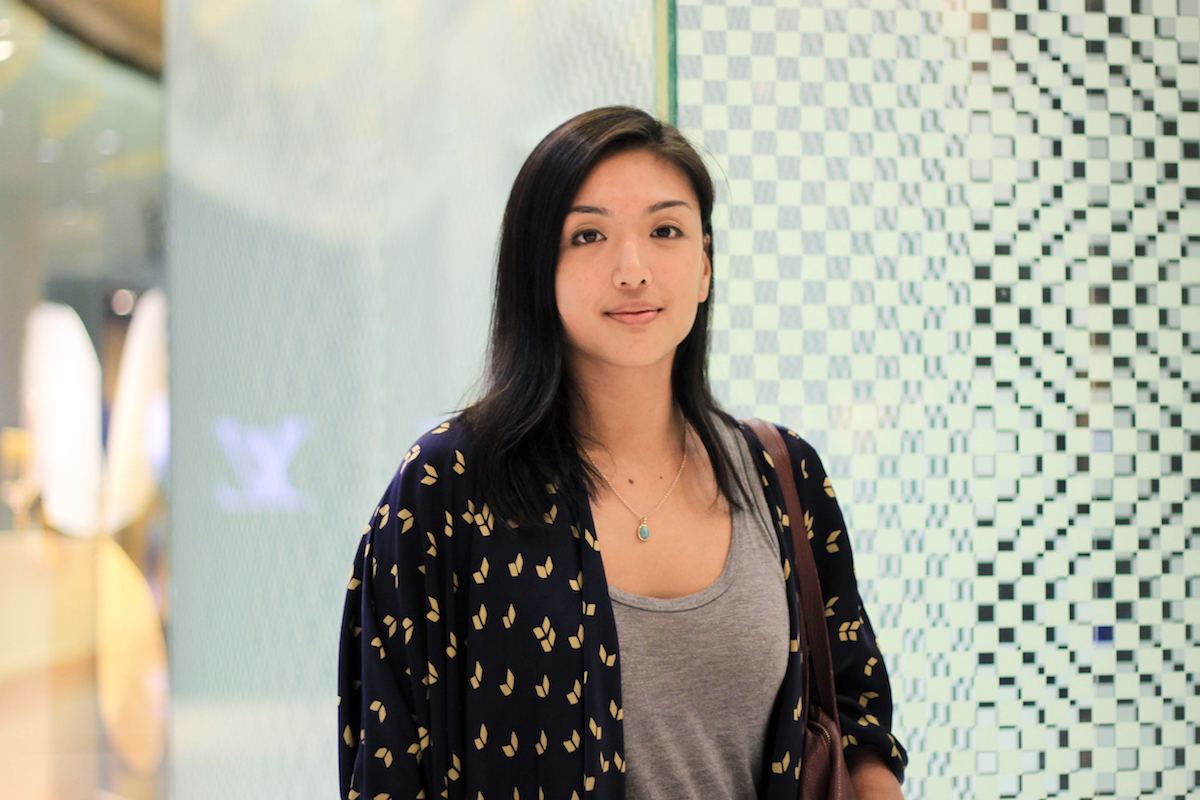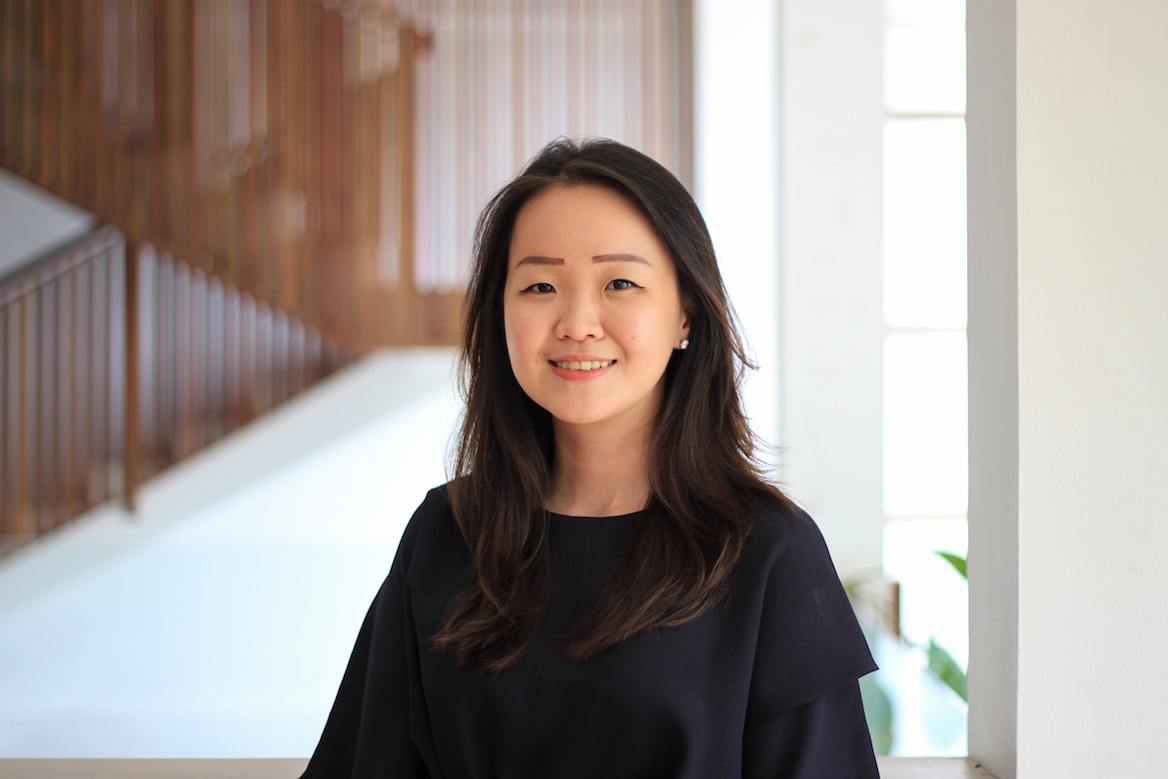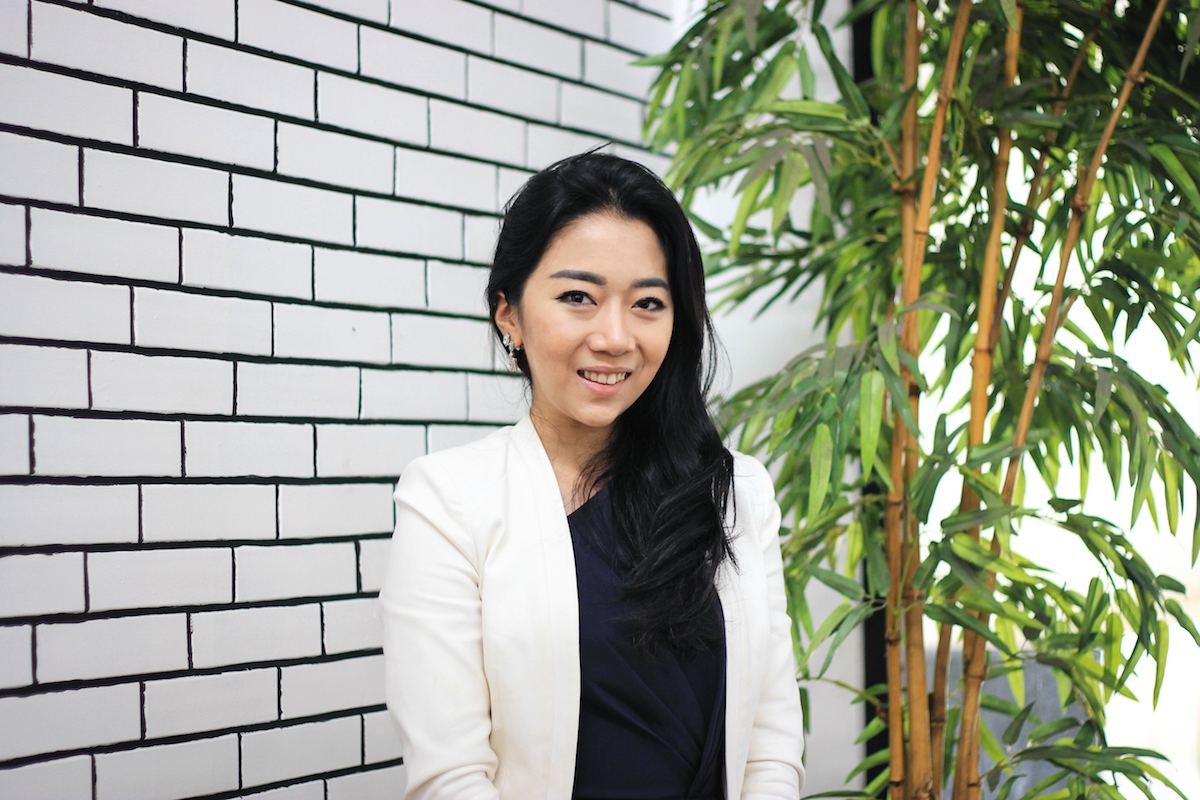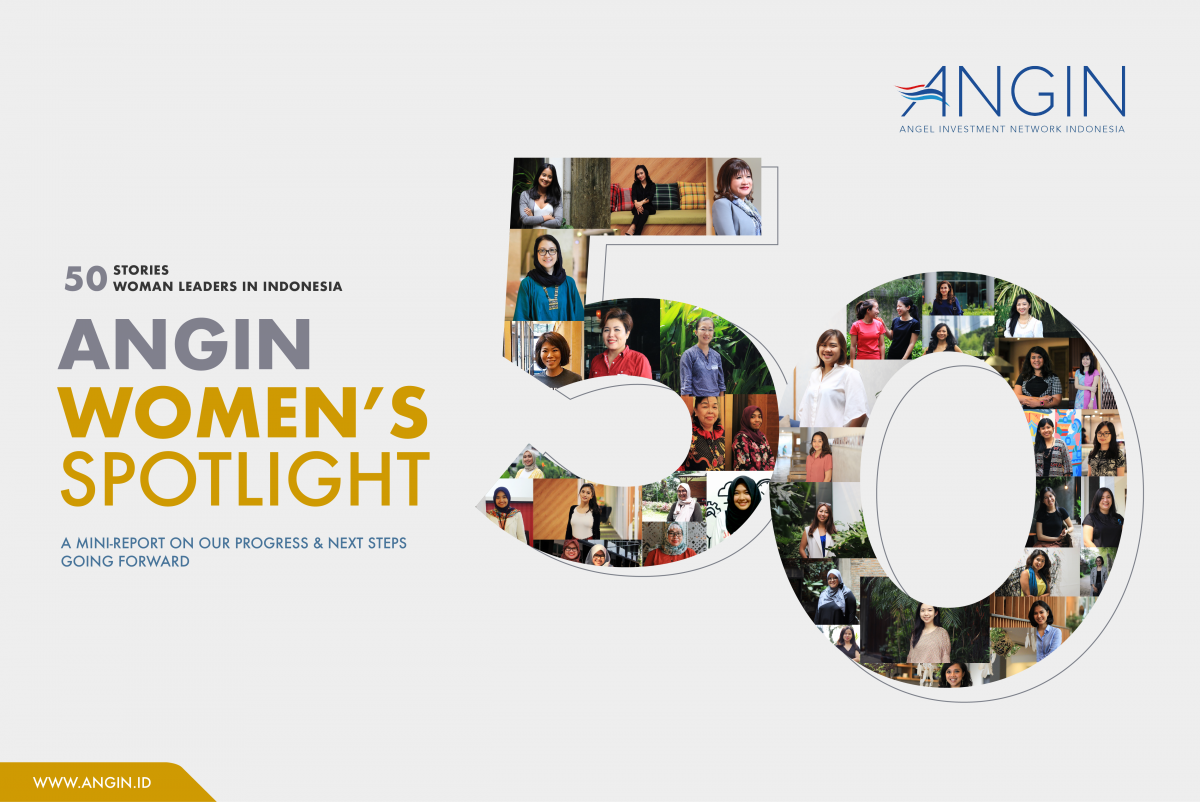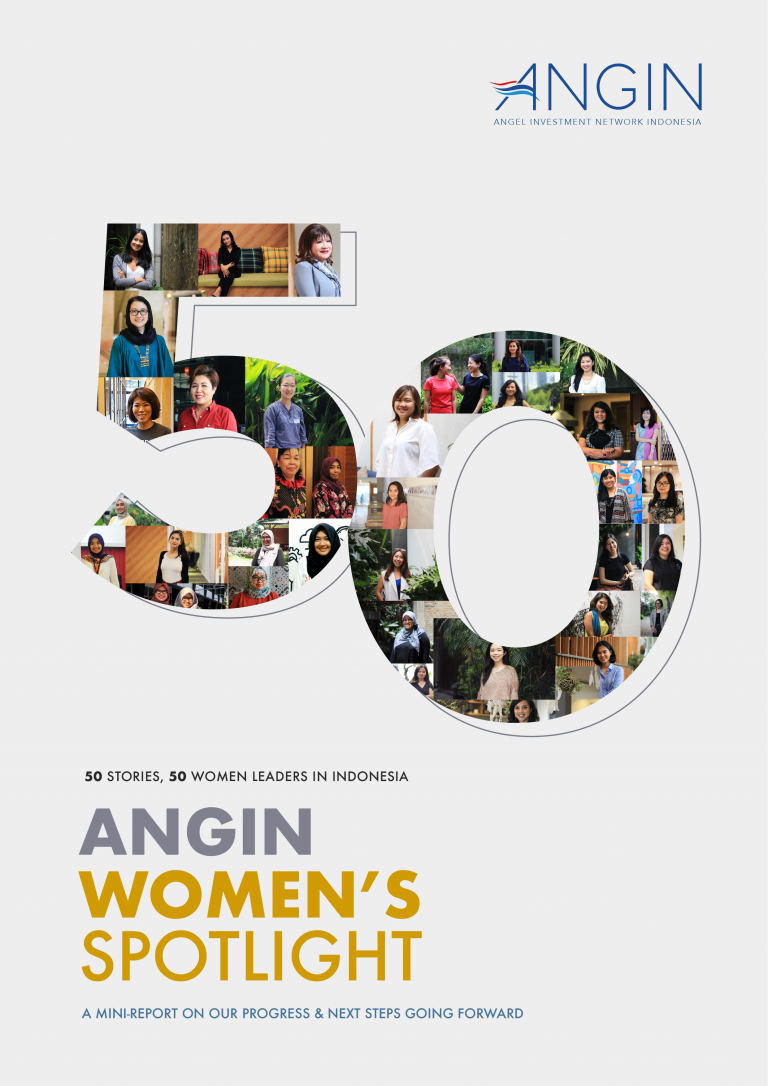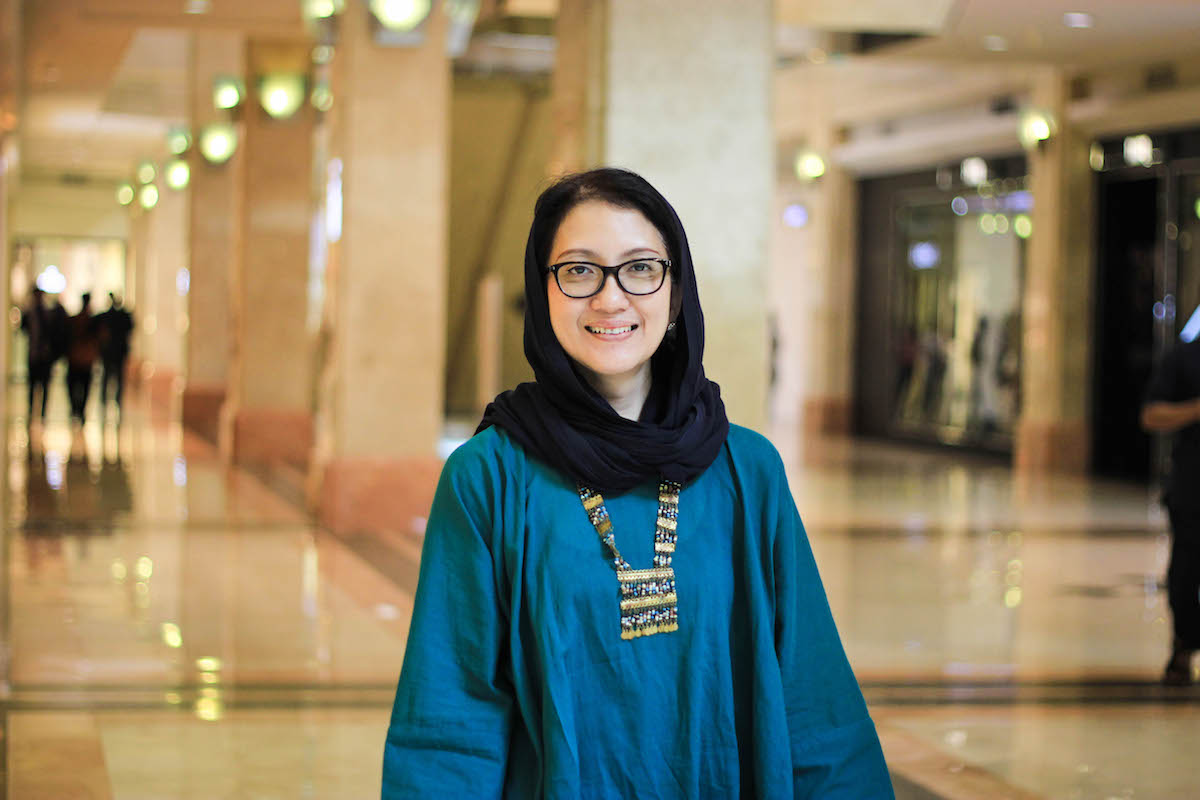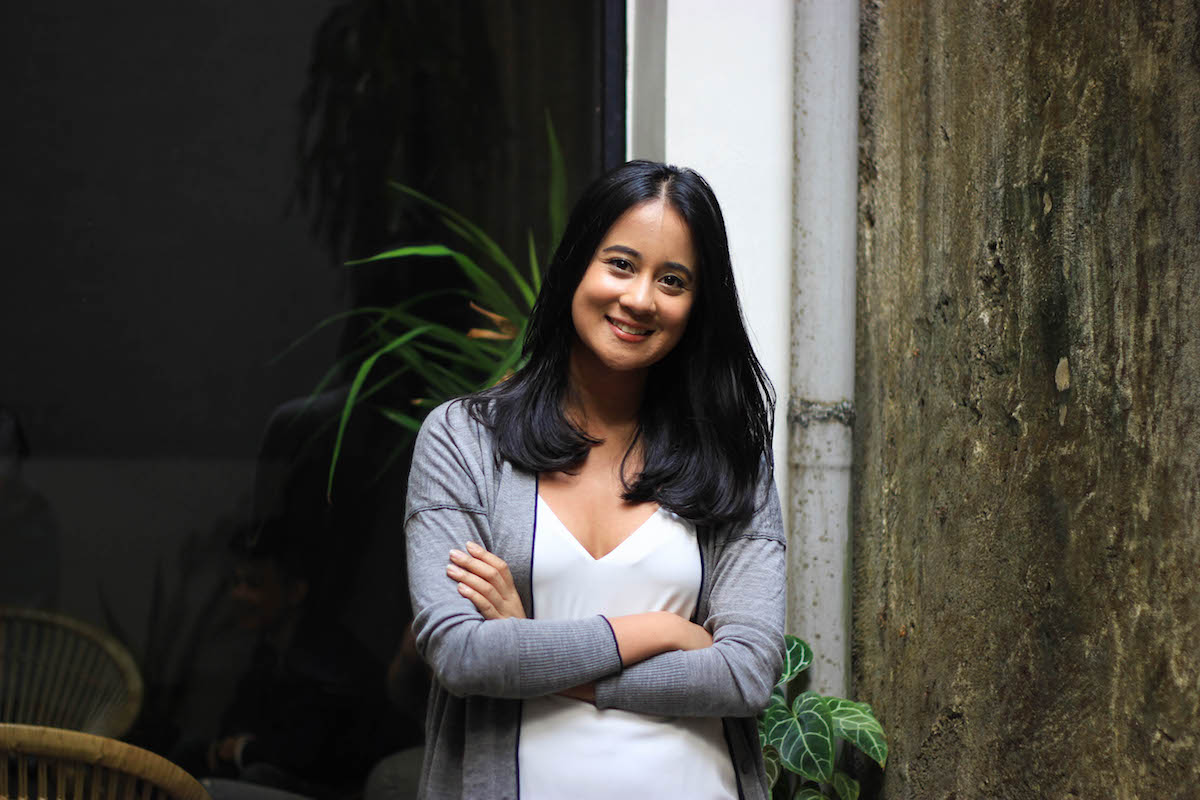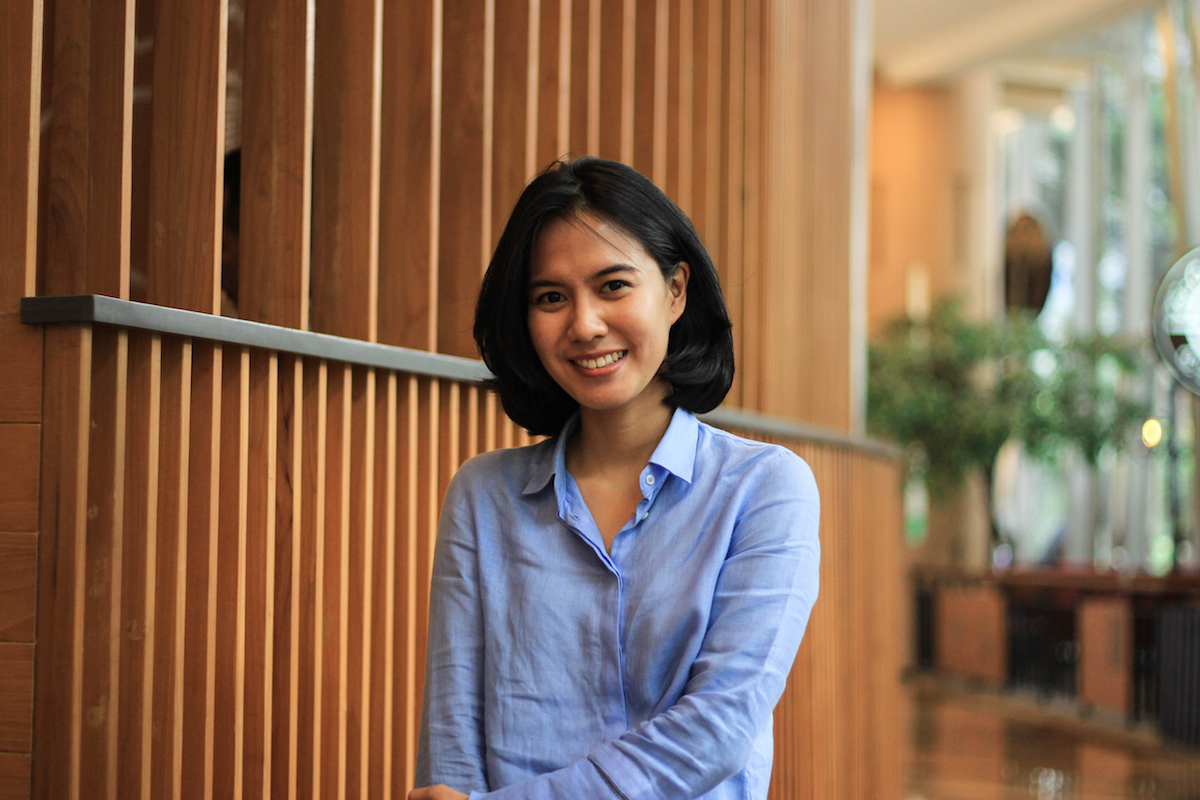Tell us a bit about yourself.
I’m Jasmine Prasetio, I’m the country head of Sotheby’s in Indonesia.
How did you become the youngest country manager of Sotheby’s in Indonesia?
I’ve always been passionate about art since I was very young. I was fortunate as I was exposed to this world early on, visiting museums, galleries and auctions, including Sotheby’s in Singapore. At that time the auctions for Southeast Asian Art were still held there. We talked about art often and the opportunity to join came up when I was chatting with the Managing Director. I was at a career crossroads and she asked if I would be interested to join, as I was so passionate about art. I started as an intern and the rest was history.
How have the Southeast Asian and Indonesian art scenes grown since you joined Sotheby’s?
I began my career at Sotheby’s in Singapore in 2004 and being in a smaller sale center, I learnt about various aspects of the business in a comprehensive way. When Sotheby’s centralized all Asian auctions to Hong Kong, I moved there in 2009, as a Specialist in Modern and Contemporary Southeast Asian Art, where we saw the collector base grow across international boundaries. I had the wonderful opportunity to see the category grow from regional to international. When I started, the sale volumes were around USD 5-8mn a year; now, the range for the Southeast Asian category is between USD 25- 40mn. It’s a great leap.
At the end of 2012, I was tasked to spearhead the conception of a new auction category as well as executing its successful inaugural auction that features Asian and Western contemporary art and design for the first time in Sotheby’s Asia. That was an enriching experience that I will always remember and one that has strengthened the bond between my colleagues and myself until today.
When I came back to Indonesia in 2013 to take on the regional role, it was a great time for art here because Indonesia was at, I think, one of its best economic performances so it was such a big opportunity for art and culture to flourish. That was the period when it really went global. It’s not only about Indonesian art or Southeast Asian art. It’s about Indonesian artists being on an international platform, being collected by international collectors, and vice versa: having Indonesian collectors collecting international art. The scope has just grown so much over a period of fourteen years or so.
What makes you unique?
You know among all the questions, I find that the most difficult. Because I don’t see myself as unique, I think that I’m quite ordinary, actually. But I am able to lead a unique life
because I’m so fortunate to be in a unique industry. Art is such a powerful platform and a powerful link that connects people from all walks of life. We can have people from different backgrounds at the table: a banker, an industrialist, a teacher, a Bohemian, a professional, an artist, etc. The possibilities are endless.
Furthermore, I have also found that art and passion are boundless and are also found in the other categories like Jewellery, Watches, Wine and Automobiles. Everyone is so connected because of their passion. I find that unique and very enriching to my life. I have learnt a lot from all of these relationships and friendships that I’ve forged. Being surrounded by these very inspiring people, there is this intangible spark that we get from one another, that has the ability to inspire, energize and provide a different perspective. I think that’s the best part.
Speaking of inspiring people, is there a unique woman that you look up to?
There are so many amazing women, but personally, I think the most inspiring person for me is my mother. She is not only my mom, but also my best friend, and I think she is unique and special. She has managed to build a business of her own, which has been established for 33 years now. And yet, with all of that achievement, she has a balanced life. She is the best mother, a devoted wife, and a great and fun friend. She manages and fulfills all of our needs, putting all of us before herself. No matter how busy she is, she’s always there for us whenever we need her, and she does it all so effortlessly and with so much wisdom and humor.
Actually there is a little comic piece I want to share with you that illustrates this perfectly. It’s a Mother’s day comic strip, where it says, “Mom we’ve hired a few people to fill in for you while you relax on Mother’s Day,” and there we have a big group of people substituting for one person. You have a clairvoyant, a teacher, a nurse, a clown, a chef, a priest, a driver and a maid.” Being a mother is the most admirable job of all.
How do you deal with challenges that come with the job?
I have learnt that life will never stop giving you challenges, so addressing it is just a matter of perspective. Challenges are opportunities; once we overcome them, that’s when we grow. Most of us don’t know the strength we have within. I believe that there is really nothing that we cannot overcome if we have faith. We wouldn’t be given burdens that we cannot bear. Each day has its own problems, but each day we will always find a solution to that. So let’s not view it as a challenge, but as an opportunity. Let’s not see it as a burden, but as a footstool that we can use to step up and grow as a person.
What is an instance where you’ve overcome a career challenge through leadership?
Well, there was one incident when we were preparing for an auction in Hong Kong. Our auctions are usually held at the Hong Kong Convention Center and we would build the panels and space from ground zero; everything is from scratch. So it was on a crucial set up day that there was
suddenly a typhoon level 8 warning. But the show must go on and we had to open the exhibition the next day. This freak of nature happened and it was something we couldn’t control. Unfortunately, during a typhoon this severe in Hong Kong no one can take public transportation because everything is shut down and taxis won’t take us because they are not covered by insurance and the art movers couldn’t even come in. So I think for 10 hours, we had no one but ourselves to set up. It was
a challenging time, but we – all the Sotheby’s team – came together. And we did it! I don’t know how, but we did it. It must have taken a small miracle, but we completed everything on time, and that auction week became one of the best auction weeks in our history! That was a triumphant moment that would not have been possible without strong teamwork and leadership.
How is the gender dynamic in the art world? At Sotheby’s specifically?
I think I have been so fortunate, that I am in a company where they value and give opportunities for women in leadership roles. And I feel grateful that there are also gentlemen in leadership roles who are unafraid to be champions of women’s empowerment. They have also given great support to me in my career.
There are a lot of women working in the art industry, and as far as Sotheby’s is concerned, we don’t shy away from having women as leaders. Our chairman for Asia, in fact, is a woman. But I understand that it is a real privilege to be in this situation and that not everyone is as fortunate. And now we are also seeing an increasing appreciation for women artists, such as the Indonesian artist Ay Tjoe Christine (who, by the way, we just sold for around USD 980,000 last April in Hong Kong), as well as Joan Mitchell and Louise Bourgeois, to name but a few. They are getting a lot more news headlines and breaking market and scholarly barriers. These are all very positive indicators of what is to come in the future.
The biggest revolution is that more and more women are supporting other women and empowering other women. There is serious value in that. Although at times we can’t control our environment, we can always make a change, no matter how small it is, by starting with ourselves. The women’s empowerment movement has left a very profound mark in my heart, because it is inspiring to see how we are empowering other women. I think that is the big mission that we can be more involved in.
What tangible steps can we take to empower more women to fill leadership positions?
That is a huge responsibility of which I feel I am playing only a very small role. But speaking generally, a small role can make a big impact. What we can all do is to hire more women and give them fair remuneration; that’s just one step towards this goal and mission. There are so many amazing and talented women — even if we ignore gender and base hiring on qualifications, we can easily find plenty of qualified women in the workforce.
In addition, perhaps we can help other women by simply being available. For example, I would always like to spare some time for someone who is young – perhaps just starting in the art industry – who would like to hear my experiences in the art world.
Many define success as being linked to wealth. In a way, wealth accumulation enables the art industry to grow. What is your view on the relationship between wealth and success?
Maybe I will first share my view of success, because that has changed over time. In the past it’s always been about something tangible, like breaking the next world record, or
bringing an Indonesian artist to an international platform, or having an exhibit in an international institution. But that is just a small part of the picture; I have learnt a very important lesson – that success is not a one man show. Whatever achievements that we have achieved, where we are today, are all due to an intricate ecosystem of people, all of whom contribute different elements into that success, and none can thrive without the other. So, success is about teamwork,
having a great support system and a great team. I have been very blessed because I’ve worked with the best – my own wonderful team and my colleagues at Sotheby’s globally. So I think the way I view wealth is not only in financial terms but more importantly, an enrichment of knowledge and forging meaningful relationships.
Financial wealth – well, you can never stop chasing this type of wealth. One day we have it, and the next we may not. But when it comes to knowledge and relationships, we will always have that.
If you were to give your younger self a piece of advice, what would it be?
I would say, know more, learn more, and listen more. I feel that I have embarked on the journey that is planned for me, and I am grateful for that journey, so there is nothing that
I feel is not good enough. But I think that if I had I known what I know today, I would probably be able to do more. Sometimes when we’re young, we think we know everything, but we don’t. (laughs)
UBS x ANGIN Women’s Spotlight is a special collaboration project between UBS Unique and ANGIN to celebrate strong Indonesian women who are exemplary leaders, unique changemakers, and role models. The project celebrates and reflects upon the individuals’ personal anecdote and professional journey and how they are challenging, reinventing and innovating their workplace in order to improve gender equality and be a force of change in their respective community and industry.
